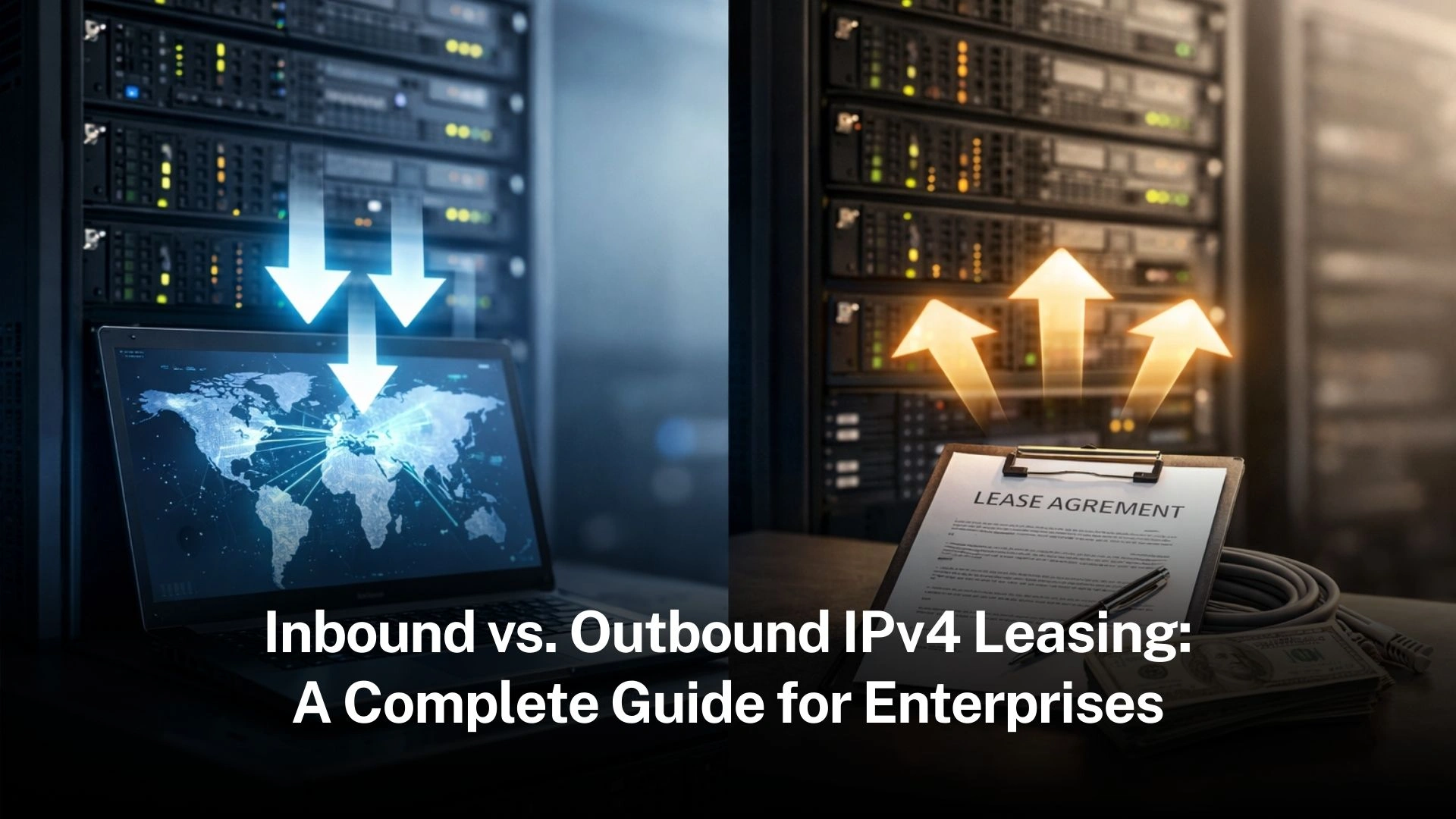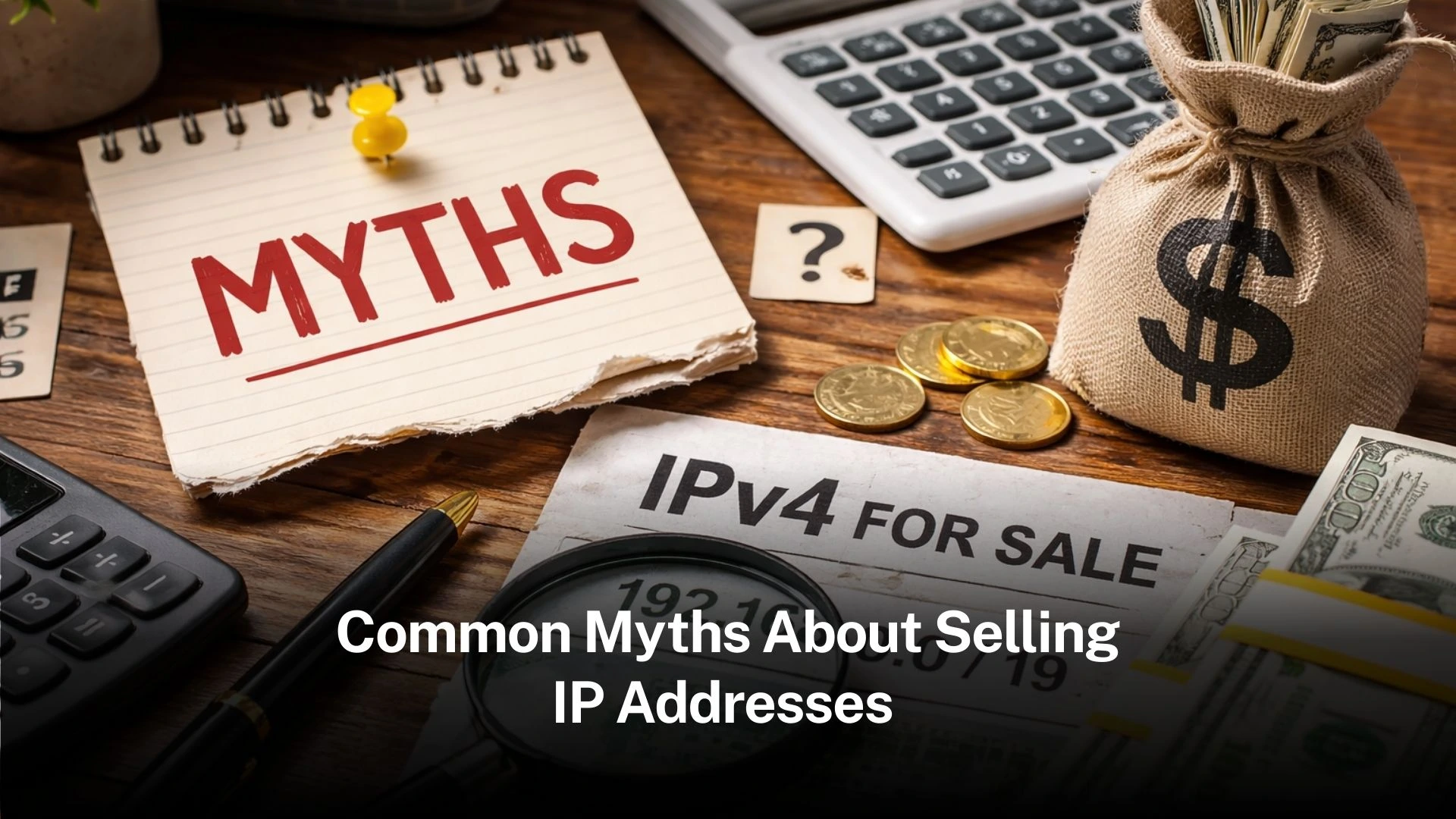The Role of BYOIP in Preventing IP Blocking
In today’s digital landscape, businesses and organizations rely heavily on seamless connectivity and secure access to online resources. However, IP blocking has become a common challenge, often disrupting operations, limiting access to critical platforms, and even affecting business continuity. One innovative solution to this problem is Bring Your Own IP (BYOIP), a strategy that allows organizations to retain control over their IP addresses and mitigate the risks associated with IP blocking.
Table of Contents
Understanding IP Blocking
P blocking is a security mechanism used by websites, services, and network administrators to restrict access from specific IP addresses. This can happen for various reasons, including:
- Geolocation Restrictions: Some services block IPs from certain regions to comply with regulatory requirements or content licensing agreements.
- Security Measures: Websites and APIs often block IPs that exhibit suspicious activity, such as excessive login attempts or high-frequency requests.
- Spam Prevention: Email service providers may blacklist IPs suspected of sending spam or malicious content.
- Traffic Management: Some platforms impose rate limits or block certain IPs to prevent abuse or overload on their servers.
For businesses that rely on uninterrupted online access, IP blocking can be highly disruptive, leading to operational inefficiencies and potential revenue loss.
What is BYOIP?
Bring Your Own IP (BYOIP) is a networking strategy that enables businesses to bring their own pre-owned, provider-independent IP addresses to cloud service providers, content delivery networks (CDNs), or internet service providers (ISPs). Instead of using dynamically assigned IPs from third-party providers, organizations retain full control over their IP space.
Major cloud providers such as AWS, Azure, and Google Cloud support BYOIP, allowing businesses to migrate and advertise their IP addresses over the provider’s infrastructure. This ensures continuity of services without the risk of frequently changing or blocked IPs.
How BYOIP Helps Prevent IP Blocking
- Consistency and Reputation Management
- Businesses that use dynamically assigned IPs from cloud providers often inherit the history and reputation of those addresses. A previously misused IP may be blacklisted, causing disruptions. BYOIP allows companies to maintain a consistent, trusted IP address, reducing the risk of being flagged as suspicious.
- Avoiding Blacklisted or Shared IPs
- Many public cloud services assign shared IPs to multiple users. If another user engages in malicious activities, the IP may get blacklisted, affecting all users assigned to it. With BYOIP, businesses operate on clean, dedicated IPs that they fully control.
- Bypassing Regional Blocks
- Organizations operating in multiple regions may face geolocation-based restrictions. BYOIP enables them to maintain IPs that are recognized across global networks, ensuring continuous access to services regardless of location.
- Seamless Failover and Business Continuity
- If a business needs to migrate between service providers or regions, BYOIP ensures that their IP addresses remain the same, minimizing disruptions. This is particularly useful for SaaS companies, financial institutions, and global enterprises that depend on stable networking.
Implementing BYOIP for Your Organization
To take advantage of BYOIP, businesses should follow these steps:
- Acquire a Provider-Independent IP Address Range: Obtain IP addresses from a Regional Internet Registry (RIR) such as ARIN, RIPE NCC, or APNIC.
- Set Up Routing and Announcements: Work with a cloud provider or ISP to advertise your IP range using Border Gateway Protocol (BGP).
- Ensure Compliance with Cloud Providers: Each cloud platform has specific BYOIP requirements, so businesses must align their IP migration strategy with provider guidelines.
- Monitor and Maintain Reputation: Regularly check IP health using tools like Spamhaus and MXToolbox to ensure that the address remains in good standing.
Conclusion
As businesses continue to navigate the complexities of online connectivity, BYOIP emerges as a powerful solution to mitigate IP blocking risks. By providing greater control, security, and operational stability, BYOIP ensures that organizations can maintain access to critical services without interruptions. Whether for cloud migrations, security management, or global networking, adopting a BYOIP strategy is a forward-thinking move for any enterprise looking to safeguard its digital presence.
Trusted IPv4 Leasing for Business Growth
Get enterprise-grade IPv4 space quickly, with seamless deployment and end-to-end management.
Get Started with i.leaseRelated Posts

Inbound vs. Outbound IPv4 Leasing: A Complete Guide for Enterprises
Understanding IPv4 leasing helps enterprises manage scarce address space, reducing risk and unlocking strategic growth opportunities in today’s digital economy. Key points Distinguishes between inbound (leasing in) and outbound (leasing out) IPv4 approaches and their strategic implications. Highlights contract structures, registry risk management and continuity considerations affecting global number resources. Inbound vs. outbound IPv4 leasing: complete enterprise guide In the post-exhaustion era of Internet Protocol version 4 (IPv4),Read more Related Posts Inbound vs. Outbound IPv4 Leasing: A Complete Guide for Enterprises Understanding IPv4 leasing helps enterprises manage scarce address space, reducing risk and unlocking strategic growth opportunities in today’s digital economy. Key Read more Common Myths About Selling IP Addresses The IPv4 secondary market is often shrouded in mystery, leading many organizations to sit on valuable digital assets because they Read more How to turn idle IPv4 addresses into a recurring revenue stream with iLease Unlock the hidden value of unused IPv4 addresses with iLease, turning dormant digital infrastructure into a recurring revenue stream while Read more .related-post {} .related-post .post-list { text-align: left; } .related-post .post-list .item { margin: 5px; padding: 10px; } .related-post .headline { font-size: 18px !important; color: #999999 !important; } .related-post .post-list .item .post_thumb { max-height: 220px; margin: 10px 0px; padding: 0px; display: block; } .related-post .post-list .item .post_title { font-size: 16px; color: #3f3f3f; margin: 10px 0px; padding: 0px; display: block; text-decoration: none; } .related-post .post-list .item .post_excerpt { font-size: 13px; color: #3f3f3f; margin: 10px 0px; padding: 0px; display: block; text-decoration: none; } @media only screen and (min-width: 1024px) { .related-post .post-list .item { width: 30%; } } @media only screen and (min-width: 768px) and (max-width: 1023px) { .related-post .post-list .item { width: 90%; } } @media only screen and (min-width: 0px) and (max-width: 767px) { .related-post .post-list .item { width: 90%; } }

Common Myths About Selling IP Addresses
The IPv4 secondary market is often shrouded in mystery, leading many organizations to sit on valuable digital assets because they fear the perceived complexity or legal “gray areas.” As IPv4 exhaustion becomes a permanent reality, the value of these addresses has skyrocketed, yet misconceptions continue to stall potential transactions. At i.lease, powered by the real-world expertise of LARUS, we’ve seen how these myths prevent companies from unlocking significant capital.Read more Related Posts Inbound vs. Outbound IPv4 Leasing: A Complete Guide for Enterprises Understanding IPv4 leasing helps enterprises manage scarce address space, reducing risk and unlocking strategic growth opportunities in today’s digital economy. Key Read more Common Myths About Selling IP Addresses The IPv4 secondary market is often shrouded in mystery, leading many organizations to sit on valuable digital assets because they Read more How to turn idle IPv4 addresses into a recurring revenue stream with iLease Unlock the hidden value of unused IPv4 addresses with iLease, turning dormant digital infrastructure into a recurring revenue stream while Read more .related-post {} .related-post .post-list { text-align: left; } .related-post .post-list .item { margin: 5px; padding: 10px; } .related-post .headline { font-size: 18px !important; color: #999999 !important; } .related-post .post-list .item .post_thumb { max-height: 220px; margin: 10px 0px; padding: 0px; display: block; } .related-post .post-list .item .post_title { font-size: 16px; color: #3f3f3f; margin: 10px 0px; padding: 0px; display: block; text-decoration: none; } .related-post .post-list .item .post_excerpt { font-size: 13px; color: #3f3f3f; margin: 10px 0px; padding: 0px; display: block; text-decoration: none; } @media only screen and (min-width: 1024px) { .related-post .post-list .item { width: 30%; } } @media only screen and (min-width: 768px) and (max-width: 1023px) { .related-post .post-list .item { width: 90%; } } @media only screen and (min-width: 0px) and (max-width: 767px) { .related-post .post-list .item { width: 90%; } }

How to buy IPv4 addresses through a certified IP broker
Buying IPv4 space requires policy compliance, verified need, and registry approval, making certified IP brokers essential guides through complex global transfers. IPv4 transactions are regulated transfers, not simple purchases — registries must approve documentation, justification and registration changes. Certified brokers reduce risk and delay by aligning buyers with registry policy, routing legitimacy and cross-region requirements. Why companies still need to buy IPv4 addresses The global supply of IPv4 addressesRead more Related Posts Inbound vs. Outbound IPv4 Leasing: A Complete Guide for Enterprises Understanding IPv4 leasing helps enterprises manage scarce address space, reducing risk and unlocking strategic growth opportunities in today’s digital economy. Key Read more Common Myths About Selling IP Addresses The IPv4 secondary market is often shrouded in mystery, leading many organizations to sit on valuable digital assets because they Read more How to turn idle IPv4 addresses into a recurring revenue stream with iLease Unlock the hidden value of unused IPv4 addresses with iLease, turning dormant digital infrastructure into a recurring revenue stream while Read more .related-post {} .related-post .post-list { text-align: left; } .related-post .post-list .item { margin: 5px; padding: 10px; } .related-post .headline { font-size: 18px !important; color: #999999 !important; } .related-post .post-list .item .post_thumb { max-height: 220px; margin: 10px 0px; padding: 0px; display: block; } .related-post .post-list .item .post_title { font-size: 16px; color: #3f3f3f; margin: 10px 0px; padding: 0px; display: block; text-decoration: none; } .related-post .post-list .item .post_excerpt { font-size: 13px; color: #3f3f3f; margin: 10px 0px; padding: 0px; display: block; text-decoration: none; } @media only screen and (min-width: 1024px) { .related-post .post-list .item { width: 30%; } } @media only screen and (min-width: 768px) and (max-width: 1023px) { .related-post .post-list .item { width: 90%; } } @media only screen and (min-width: 0px) and (max-width: 767px) { .related-post .post-list .item { width: 90%; } }